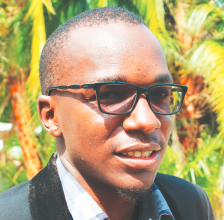President Peter Mutharika has not achieved much since he was elected in May 2014. In the past fortnight, however, he has pulled off such a political masterstroke probably to eclipse any accomplishment in his entire life.
Mutharika assured the nation, about two weeks ago, that government would consult extensively before disposing of Malawi Savings Bank (MSB). This came after opposition parties in Parliament threatened to torpedo the 2015/16 Budget if government insisted on the sale. But the parties went to sleep after Mutharika’s cosmetic assurances—it turns out in retrospect—and proceeded to pass the budget grudgingly.
On Thursday, the opposition parties woke up to pictures of the smiley face of Minister of Finance Goodall Gondwe happily signing off the bank to the new owners.
By doing so, Mutharika pulled off a coup even the self-styled political engineer Bakili Muluzi may have struggled to execute. And he just became the most unpopular person in Parliament, the bedrock for the most caustic opposition to MSB’s sale.
We will leave it to posterity if the government shook hands with the devil over the deal but the sad thing about it all was that the champagne was popped before government made assurances about how it would recover billions from politicians who let the bank sink in the first place.
The affair has just revealed that the whole talk of consultations was a careful orchestrated charade. Mutharika was attempting to look like he is a thoughtful and consultative leader. He is anything but.
Which is why chiefs in urban areas, who have had the carpet rudely pulled from under their feet, ought to take with a pinch of salt the news that Mutharika would like to ruminate over their dethronement by the government. Be warned, Mutharika’s definition of consultations is yet to make the dictionaries.
Of course, I shed no tear for the chiefs’ dethronement. It is long overdue. In fact, the only reason I haven’t brought out the champagne glasses is because I wish the government could extend that to all chiefs in the country. Chieftaincy is overrated. It is a relic of a bygone era.
The chiefs in urban areas—well, make that all over the country—have lived a cosseted life for too long. But they should have seen it coming. The law could never have been clearer in the Chiefs Act and Local Government Act that the urban chiefs were anachronistic. My only gripe with the government is that it fell short of declaring the entire institution of chieftaincy in Malawi obsolete and illegal.
We have far too many chiefs—over 42 000—and many tend to be used as political pawns, without seeming to possess a mind of their own. Isn’t chieftaincy the only institution where the concept of an independent mind doesn’t seem to exist? Don’t they all parrot the same trite statement of supporting the government of the day when confronted with a political choice? And at what cost?
At the last count, Malawi had 34 589 village heads (who receive an honoraria of K2 500 each), 7 492 group village heads (K5 000), 59 sub-traditional authorities, 164 traditional authorities (K18 000), 39 senior chiefs (K30 000) and seven paramount chiefs (K50 000). Chump change you might say until you crunch the numbers and realise taxpayers pay K128 935 500 a month, and K1.5 billion per annum! Enough to comfortably run a major hospital for a year. All for what? For an institution that is way beyond its sell-by date, that has refused to reform and sticks to a past that is all gone?
People argue that chiefs are the last bastion of tradition, which is fast eroding at the speed of light. Shouldn’t the very fact render the chieftaincy obsolete? If, indeed, they represent tradition and their people, shouldn’t it be natural that they should draw satisfaction alone from the role it places them in society? Paying them for something they inherit by tradition is a tad absurd.
If they look after their communities and safeguard their tradition, why should it be government’s obligation to pay the chiefs?
Chieftaincy is about right and wrong; the right families get rewarded with chieftaincy, the wrong ones are condemned to perpetuity as followers. And that’s not the society we are living in or we want to build. Our aspiration is for a society of equal opportunities.
Ultimately, the whole protest by the chiefs is about money. But why can’t they work, carry out business or engage in any legitimate enterprise that can bring food on the table? After all, no law forbids them from working. The chiefs’ protest has nothing to do with the so-called customary role they occupy in society. It is about the honoraria.
Some may support the chieftaincy for instilling order in communities, but Tanzania abolished the chieftaincy in the late 1960s but it is no more chaotic than Malawi. Or is it?
For an institution that has been consistently ticked off as among the most corrupt institutions in the country, it beggars belief why we give it so much leverage. Removing them from the picture would be good riddance to bad rubbish. This is by no means to suggest that every institution perceived to be corrupt should be taken from the picture. If we did, we would have no police—and that is some recipe for chaos.





